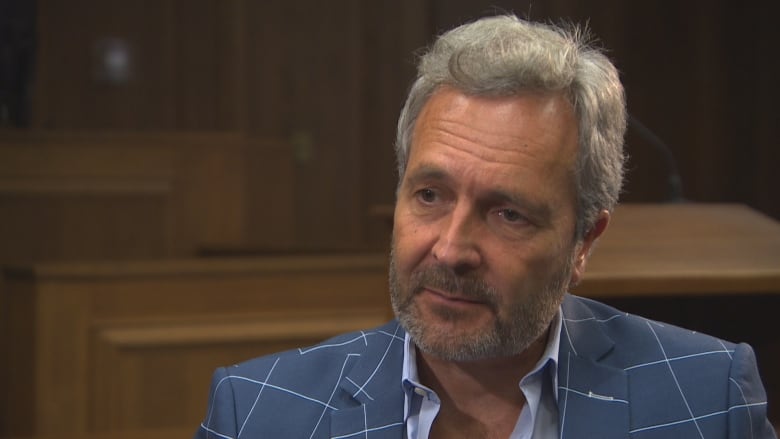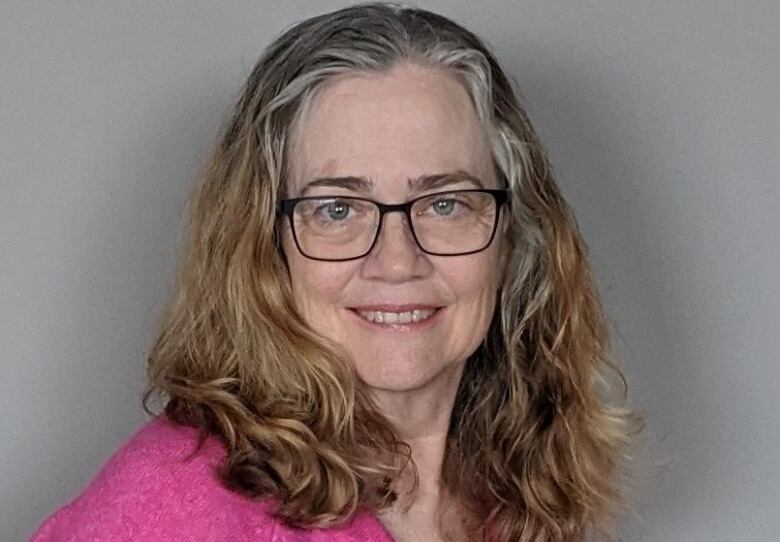Manitoba judge should continue to preside over case after being followed, says law professor
Justice Glenn Joyal was followed while presiding over court challenge to COVID-19 restrictions

A Manitoba judge has made the right decision incontinuingto preside over a court challenge to COVID-19 restrictions after it was revealed one of the lawyers involved had him followed, a Manitoba law professor says.
"I think if he were to step down that would set a dangerous precedent," said University of Manitoba law professor Karen Busby.
During a court hearing Monday morning, Court of Queen's Bench Chief Justice Glenn Joyal said he discovered he was being followedby a private investigator last week, in an effort to catch him breaking public health orders.
Joyal is currentlypresiding over a case involving a group of Manitoba churches fighting pandemic restrictions. The challenge was launched on behalf of the seven churches by the Justice Centre for Constitutional Freedoms, which is representing multiple churches across the country fighting COVID-19 public health orders in court.
John Carpay, the Justice Centre'sfounder and president, is taking an indefinite leave from the organization, its board of directors announced Tuesday.
Carpay, a lawyer who was representing the Justice Centre in the Manitoba court case,said the decision to hire a private investigator to follow Joyal was his own initiative and "was not discussed with Justice Centre clients, staff lawyers or board members."
He saidthe decision was madein an effort to hold government officials accountable and it was not an attempt to influence the decision in the case.
Jay Cameron, another lawyer representing the Justice Centrein the court challenge,became aware of the surveillance a couple of weeks ago, Joyal said Monday. Both Cameron and Carpay have apologized.

Busby said she was shocked when she heard what had unfolded.
"I have never heard a story like this in Canada," she saidin an interview with CBC on Tuesday.
"We believe very strongly that the place where you advocate with judges is in the courtroom and through written briefs that are formally submitted in court."
Joyalhas said what's been exposed will not influence his decision in the case and he will continue without bias.
Busby thinks that's the right decision.
"Any other decision could encourage people to try to blackmail or intimidate or harass judges to the point where they felt that they would have to step off the case because they lacked independence or were biased in some way," she said.
Joyal said Monday he expects to give his decision in the Manitoba case in a few weeks.
Lawyers feeljudge can continue: courts spokesperson
AimeFortier, a spokesperson for Manitoba Courts, said in a written statement all parties indicated on the record they had no problem with Joyal proceeding with the case.
"They were satisfied, as he had initially affirmed, that he was still very much capable of impartially deciding this case based on the law and the facts that were before him,"Fortier said in a written statement sent to CBC Tuesday.
Counsel could have brought forward a motion for recusal if they had wanted to, Fortier added.
Johanna Laporte,director of communications for the Canadian Judicial Council which oversees judicial conduct said in an emailed statement that "impartiality is the fundamental qualification of a judge and a core attribute of the judiciary."
Judges are presumed, "unless the contrary is demonstrated, to have acted in good faith and with due and proper consideration of the issues before him or her," Laporte said in a written statement.
An Ottawa human rights lawyer, meanwhile, said he has filed professional misconduct complaintswith the law societies of Manitoba and Alberta against the lawyers representing thechurches in the Manitoba case.
The incidentis "probably the most egregious case of professional misconduct that I've heard of in quite some time," saidRichard Warman.
Winnipeg police are investigating, but provided no other comments.
With files from Sarah Petz, Rachel Bergen and Alana Cole












_(720p).jpg)


 OFFICIAL HD MUSIC VIDEO.jpg)
.jpg)



























































































